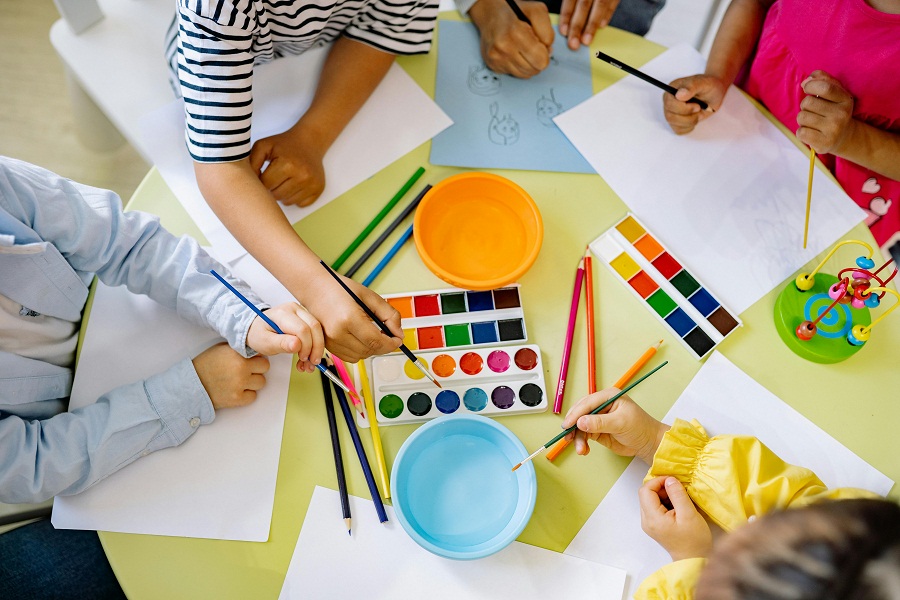
Published :
Updated :

Becoming a parent and equipping your child with the necessary competencies is the aspiration of every guardian. There are specific areas in which children at each stage of development need to learn, develop habits, and practice them.
In Bengali culture, children are traditionally treated with love and care and are often seen just as kids. However, times have changed. Modern technology, working parents, evolving socio-economic conditions, and global culture have influenced contemporary parenting.
There are different ages, and children learn various modes of issues at multiple ages. Besides, children on the brink of young adulthood navigate the complex transition from childhood to adolescence.
This period is crucial for acquiring broad skills and knowledge to lay the foundation for their future. The education and experiences they receive during this time should be holistic, encompassing academic, social, emotional, and practical life skills. Here are a few key areas in which children should develop proficiency by the time they complete their adolescence.
Developing hobbies
Parents should focus on exploring different hobbies with their children, discovering what attracts them, what triggers their mood, and what enhances their capabilities.
A hobby plays a crucial role in personal development. It could be reading books, painting, gardening, singing, dancing, debating, caring for a pet, learning another language, or any other activity that brings joy and fulfilment.
Children should acquire these skills, such as playing guitar, harmonium, or violin. This will allow them to explore different fields beyond the general choices of becoming a job holder, doctor, engineer, or business person.
Practical skills
Children should develop practical skills from an early age. In today's high-tech world, practical skills are essential for independence and long-term success. We might not have practised it in childhood, but parents of this age know its importance.
These skills include cooking, laundry, treating wounds, repairing household items, and more. Learning these skills through everyday experiences rather than formal classes makes them more accessible and applicable.
Using the web wisely
The Internet is a valuable resource for learning and growth, but it must be used wisely. Parents or older siblings should teach children how to use the web effectively.
They should learn to seek help from reliable websites, use the Internet for educational purposes, and understand the importance of online safety. They should be allowed to use the web independently, but their activities should also be monitored.
Cultivating critical thinking
We never heard of critical thinking back in our early days. Critical thinking is essential for personal and academic growth. By 15, children should be able to analyse information, evaluate arguments, and solve complex problems.
Encouraging curiosity and a questioning mindset helps them become independent thinkers. Awareness of global challenges such as climate change, poverty, and human rights issues fosters a sense of global citizenship and responsibility, motivating them to contribute positively to the world.
Learning ethics and moral values
Being a good human requires a solid ethical foundation. Children should learn core values and develop an awareness of how to treat others with respect and kindness.
Critical moral values include honesty, empathy, courtesy, and helping others. By understanding and practising these values, children move through with integrity and compassion, building solid and respectful relationships.
Sadia Rahman, a banker and mother of two children of different ages, shares her experience raising her kids. She says, "I believe children should develop a sense of responsibility and learn the language of moral ethics these days. It's crucial because they are growing up in an age dominated by technology, where they often prefer solitude and consider technology their closest friend."
Engaging in sports
Participation in sports or regular exercise helps children stay fit and develop social and emotional learning (SEL) skills. Sports such as cricket, football, chess, basketball, and badminton foster teamwork, discipline, and perseverance.
Becoming a self-starter
Teaching children to be self-starters is one of the best skills they can learn. This involves setting reachable goals, embracing change, adjusting self-image flexibly, and accepting failure as part of the process. Encouraging self-motivation helps children become more independent and successful. Self-starters are typically more self-aware and tend to attract like-minded individuals, which can improve their relationships and future success.
Mosabber Hossain, a software engineer and father of a three-year-old toddler, has planned extensively for his only child. "I'll ensure my child learns how to thrive in this competitive world. Their education must blend traditional values and practical skills, serving our family culture and the demands of the competitive environment."
A child's development, bridging the gap between childhood and adulthood, marks a critical juncture. A comprehensive education that balances academic excellence with emotional intelligence, digital literacy, practical life skills, cultural awareness, physical health, and ethical values equips children with the tools they need to navigate the complexities of life.
afranawmi@yahoo.com


 For all latest news, follow The Financial Express Google News channel.
For all latest news, follow The Financial Express Google News channel.